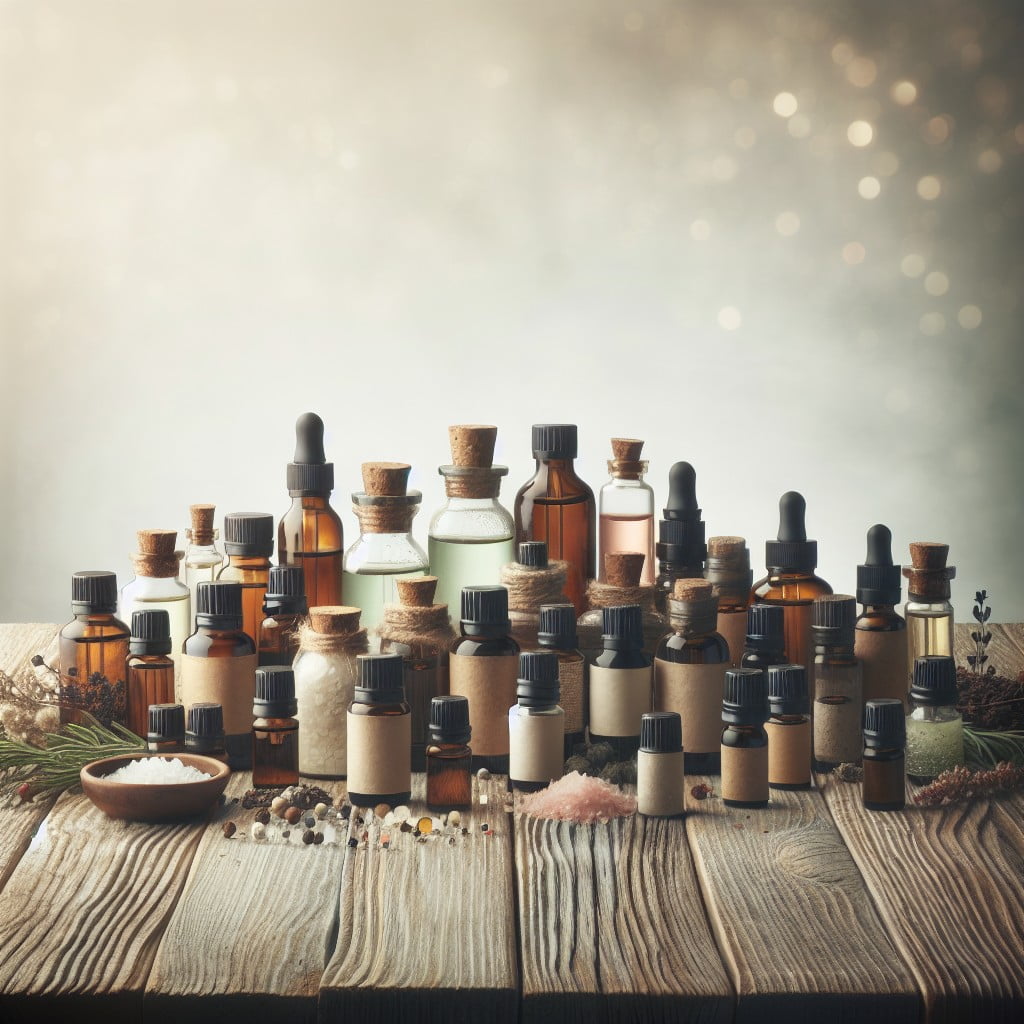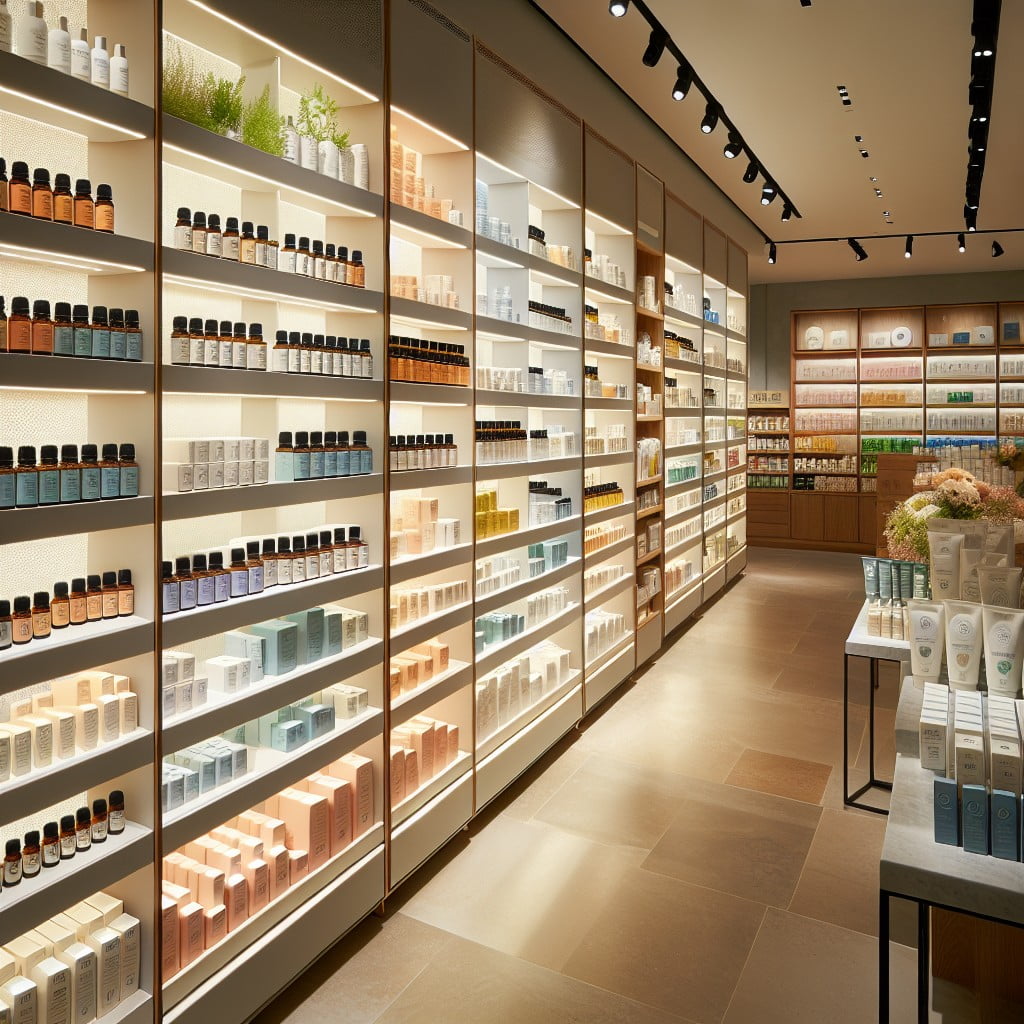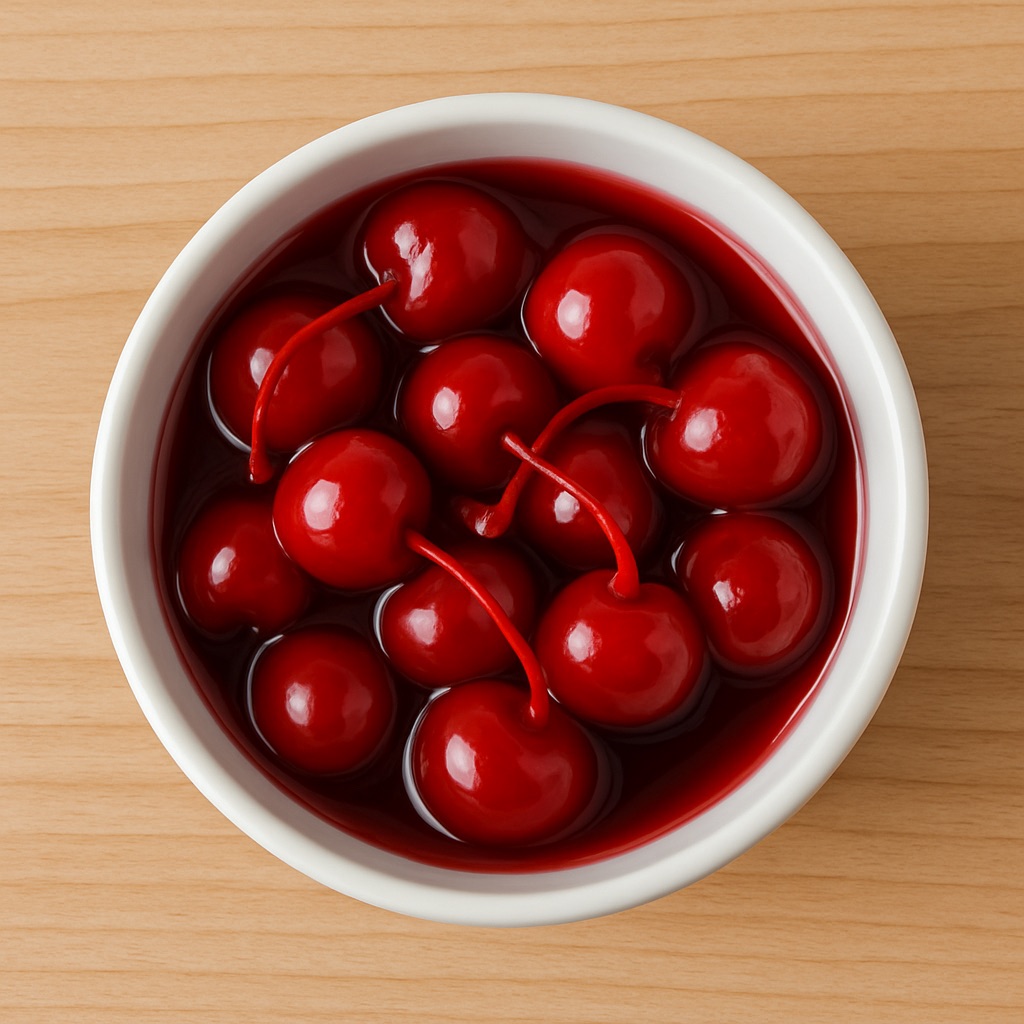Last updated on
Exploring the best essential oil brands can illuminate a pathway to holistic health and wellness because the right choices can transform your environment, mood, or skincare routine immensely.
Diving into the world of essential oils can be both enchanting and overwhelming, with countless brands claiming to offer the purest and most effective oils. Whether you’re looking to enhance your wellness routine, create a tranquil home environment, or introduce safe scent options for your children, selecting the right brand is crucial.
From Plant Therapy’s KidSafe line and commitment to purity to Enfluerage’s array of rare oils, the best brands not only promise quality but also offer specialized features to cater to varied needs. This guide illuminates the standout attributes of premier essential oil brands—like Rocky Mountain Oils’ safety and quality credentials or Edens Garden’s gift-ready assortments—and helps you navigate the aromatic aisles with confidence, ensuring you find the perfect essence for your space and spirit.
With expert insights and a breakdown of what each brand uniquely brings to the table, you’re about to discover the ideal match for your aromatic journey.
Key takeaways:
- Plant Therapy: Purity, affordability, transparency, and KidSafe line.
- The Vitamin Shoppe: Convenience, variety, quality assurance, expertise, and promotions.
- Enfluerage: Locally sourced, transparency, rare oils, and knowledgeable staff.
- Rocky Mountain Oils: Safety, quality assurance, accessibility, and Kid’s Line.
- Edens Garden: Extensive sets, descriptions, packaging, and gifting options.
Best Overall: Plant Therapy

Plant Therapy tops the list with its commitment to purity, quality, and affordability. Their oils undergo multiple rounds of testing, including third-party GC/MS (Gas Chromatography/Mass Spectrometry) tests, to ensure that each bottle is free from additives and impurities.
As a family-owned company, they cater to both beginners and aromatherapy experts, offering a vast range of single oils and synergistic blends.
Transparency is another hallmark of their service, as they provide detailed information about the source, extraction method, and testing results for every product. This enables consumers to make well-informed decisions.
Moreover, Plant Therapy’s commitment to consumer education is evident in their online resources and blog posts that cover usage tips and safety guidelines.
In addition to essential oils, they offer a line specifically designed for children, KidSafe, formulated by aromatherapy experts to be gentle yet effective.
Balancing affordability with quality, Plant Therapy ensures that those new to aromatherapy as well as seasoned practitioners have access to a comprehensive array of oils without breaking the bank.
Best In-Store: The Vitamin Shoppe

For those who prefer a brick-and-mortar shopping experience, The Vitamin Shoppe offers an easily accessible solution. They stock a wide variety of essential oils, allowing customers to explore scents and products in person. This can be particularly useful for beginners unsure about different aromas or individuals sensitive to certain fragrances who need to test products before purchase.
Key points about The Vitamin Shoppe:
- Convenience: With numerous locations, finding a store nearby is generally easy.
- Variety: They provide a broad selection of oils and related products, catering to different preferences and uses.
- Quality Assurance: The oils are sourced from reputable brands ensuring consistent quality.
- Expertise: Staff can often provide guidance or answer questions on the spot, enhancing the customer experience.
- Promotions: Regular discounts and loyalty programs offer value for money, making essential oils more affordable.
By providing essential oils in a tangible retail setting, The Vitamin Shoppe stands out for consumers looking for immediacy and personalized shopping assistance.
Best Locally Sourced: Enfluerage

Nestled in the heart of New York City, Enfleurage stands out for its commitment to sourcing essential oils from small farms and distilleries. With a strong emphasis on quality and environmental responsibility, they offer a range of oils that are both potent and pure. Many of the farms they partner with employ traditional distillation methods, ensuring that the oils retain their therapeutic properties.
Enfleurage’s transparency is evident; they openly share information about the origin of their oils and the farmers they work with. This connection to the source provides an assurance of authenticity for customers seeking to support local businesses and sustainable practices. Moreover, the brand offers a unique selection of rare and exotic oils, ideal for enthusiasts looking to expand their aroma repertoire.
Every visit to their brick-and-mortar store or online shop is an educational experience. The knowledgeable staff at Enfleurage are well-equipped to guide customers through the benefits and uses of each oil, ensuring an informed purchase. Whether you’re in the market for a soothing lavender or an invigorating peppermint, Enfleurage’s dedication to local sourcing translates into an exceptional product worth incorporating into daily life.
Best for Parents: Rocky Mountain Oils

Rocky Mountain Oils caters to the needs of parents with a keen focus on safety and transparency. Their products come with detailed usage instructions, which is crucial for families seeking to integrate essential oils into their daily lives responsibly.
With a Kid’s Line specifically formulated for younger users, they ensure that concentrations are age-appropriate and safe for children. These blends are ready-to-use, eliminating the guesswork on dilution ratios which can be particularly concerning when used around children.
Furthermore, the company’s commitment to quality is evident in their GC/MS testing (Gas Chromatography/Mass Spectrometry), providing consumers with assurances of the oils’ purity and potency. Online access to these test results gives an extra layer of confidence in their commitment to creating products that are not just effective, but also reliable and free from contaminants.
This dedication to quality and safety makes them a preferred choice for parents who are mindful of the products they bring into their homes.
Best Sets: Edens Garden
Edens Garden offers an extensive collection of essential oil sets, each curated to accommodate different preferences and needs. Their synergy blends are particularly notable, with options that target specific concerns like sleep, stress, and focus. The variety packs also serve as an excellent introduction to aromatherapy for novices, providing a well-rounded selection to explore.
With each set, you receive a detailed description of the oils included, helping you understand the potential benefits and uses of each. Furthermore, Edens Garden takes pride in the purity of their products, which is reassuring for those concerned about the authenticity of their essential oils.
Their commitment to quality extends to the packaging as well, where oils are sealed and presented in dark amber bottles to protect the integrity of the contents from light degradation. This attention to detail ensures that customers receive fresh and effective oils.
For those looking to gift essential oils, the brand’s sets come in aesthetically pleasing boxes, making them a thoughtful and convenient gift option. The combination of quality, presentation, and education provided with each set solidifies Edens Garden as a top choice for those seeking variety and reliability in their aromatherapy journey.
Best Budget: Now Foods
When it comes to balancing cost with quality, Now Foods emerges as a prime choice for budget-conscious consumers. This brand has established a strong reputation for offering a broad range of essential oils that don’t break the bank.
Here are some points to consider when exploring what Now Foods has to offer:
- Comprehensive Product Range: With an extensive variety of single oils and blends, Now Foods provides options for almost every use, from aromatherapy to homemade cleaning products.
- Quality Assurance: Despite the lower price point, the brand maintains a commitment to purity, with essential oils that are 100% pure and natural, GC/MS (Gas Chromatography/Mass Spectrometry) tested for quality.
- Accessibility: Now Foods products are widely available, both in physical health stores and online, making them an accessible option for many people.
- Packaging: Oils are packaged in dark bottles to protect from light degradation, ensuring the longevity and efficacy of the product.
- Consumer Education: The company provides useful information for safe usage, making it a great starting point for those new to essential oils as well as seasoned users.
Now Foods exemplifies the possibility of obtaining quality essential oils without compromising on cost, making wellness accessible to a broader demographic.
Best Medicinal: Native Remedies
Native Remedies has established a reputation for producing high-quality essential oils with a focus on health and wellness benefits. Their selection is extensively researched and includes options specifically tailored for various medicinal uses.
Therapeutic Grade Oils: Native Remedies ensures their oils meet rigorous therapeutic grade standards, meaning they are potent and effective for various health concerns.
Wide Range of Products: They offer an extensive range of oils that can help support the immune system, promote relaxation, enhance mood, or aid in better sleep.
Homeopathic Compatibility: Unique to Native Remedies is their homeopathic-friendly formulations, designed to work in tandem with homeopathic treatments.
Transparent Sourcing: The brand is transparent about where they source their oils from, reassuring customers of the ingredients’ purity and the company’s ethical practices.
Third-Party Testing: All oils undergo third-party testing for purity assurance, ensuring each bottle delivered is of the highest quality.
Informative Resources: The company provides ample information on how to utilize their oils for medicinal purposes, including detailed product descriptions and a supportive customer service team.
Focused on Synergy: Native Remedies emphasizes the importance of blending oils for synergistic effects, offering pre-mixed blends for specific therapeutic benefits.
By concentrating on the healing aspects of aromatherapy, Native Remedies stands out for anyone looking to use essential oils as part of their health regimen.
Best Education: Aromatics International
Aromatics International sets itself apart with their commitment to educating consumers about essential oils. They offer a wealth of resources for those looking to deepen their understanding, including:
- An extensive blog with articles on everything from blending techniques to the science behind essential oil properties.
- Detailed essential oil profiles that feature uses, benefits, safety guidelines, and batch-specific GC/MS reports, ensuring transparency.
- Online courses and webinars designed for both beginners and advanced users, created by certified aromatherapists.
- A unique feature which allows customers to shop by the specific issue they are hoping to address with essential oils.
This holistic approach to education not only fosters informed use but also empowers users to make choices that are best for their individual needs and lifestyles.
Best Blends: NEOM Organics
NEOM Organics stands out for its expertly crafted blends that cater to enhancing your well-being. Their 100% natural fragrances are designed to trigger the therapeutic benefits of essential oils effectively. These blends target various aspects of daily life, from sleep and stress to energy and mood.
- Their “Tranquillity” fragrance, for instance, combines lavender, jasmine, and Brazilian rosewood for a soothing effect.
- For an energizing boost, the “Energy Burst” is a mix of grapefruit, lemon, and rosemary.
- If stress is a concern, “Real Luxury” offers a comforting blend with lavender, jasmine, and Brazilian rosewood.
- Each NEOM blend is crafted to the highest standards, ensuring safety and efficacy.
- NEOM also offers options in various formats, including oil blends for diffusers, candles, and room sprays, making them versatile for any setting.
This brand’s commitment to sustainably sourcing and no synthetic fragrances guarantees purity in every bottle, aligning health benefits with ethical practices.
How We Selected
In curating the top essential oil brands, we implemented a thorough selection process. This involved:
- Analyzing customer reviews for firsthand experiences and satisfaction levels.
- Consulting aromatherapists and wellness practitioners for expert opinions.
- Reviewing third-party testing results to confirm oil purity and absence of synthetic additives.
- Investigating the sourcing of ingredients, favoring brands that prioritize ethical and sustainable practices.
- Considering the range of products offered, ensuring a variety of choices for different applications.
- Looking into the brand’s transparency regarding extraction methods and plant origins.
- Evaluating any educational resources provided to help consumers make informed decisions.
This multifaceted approach allowed us to recommend brands that adhere to high standards of quality and ethics.
What to Look for When Buying Essential Oils
Understanding the quality of essential oils is key to selecting the right brand for your needs. Here is what to consider:
1. Purity: Pure essential oils are derived from plant parts without any additives. Verify if the brand discloses the oil’s botanical Latin name, which indicates specificity and purity.
2. Quality Testing: Look for brands that perform rigorous testing, like Gas Chromatography-Mass Spectrometry (GC-MS), to ensure the oil’s composition is free of contaminants and adulterants.
3. Sourcing: Ethical sourcing means plants are harvested responsibly and the oil’s origin is traceable. Brands that partner directly with farms or practice sustainable harvesting contribute to quality assurance.
4. Labeling: Accurate labels should reveal if the oil is organic, wildcrafted, or ethically farmed. Certification seals, such as those from the USDA for organic oils, can attest to the oil’s compliance with certain standards.
5. Packaging: Quality oils are sensitive to light and should be sold in dark-colored glass bottles to preserve their properties.
6. Reputation and Reviews: A brand’s reputation, reviews, and transparency can be indicators of reliability. Look for user testimonials and industry feedback.
Selecting an essential oil brand involves a balance of these critical factors to ensure you’re getting a product that’s not only effective but also ethically produced and scientifically verified for use.
What to Look For in an Essential Oil Brand
When selecting an essential oil brand, certain criteria can guide you to high-quality products. Prioritize brands that demonstrate a commitment to purity. This means they offer oils free from additives, synthetic ingredients, or contaminants, verified by GC/MS testing—a technique used to ascertain the oil’s composition.
Look for transparency in sourcing. Brands should provide clear information about where their plants originate, preferably supporting ethical farming practices and sustainable methods that protect the Earth’s resources.
The extraction method is also a key indicator of quality. Steam distillation and cold-press extraction are traditional techniques that preserve the natural essence of the oils. Avoid oils extracted using solvents or chemicals, as these can alter the oil’s chemical profile and reduce its therapeutic value.
Additionally, consider brands that invest in education, providing customers with in-depth information on how to safely use essential oils, suggesting that they value consumer well-being over mere profit. Lastly, it’s wise to assess the brand’s reputation through certifications, which reflect adherence to industry standards and best practices.
Does It Really Matter Which Brand of Essential Oil You Choose?
Selecting the right brand is crucial for several reasons:
Quality Assurance: A reputable brand is more likely to provide oils that are pure, without additives or synthetic ingredients, which could potentially cause adverse reactions.
Effectiveness: Higher quality oils often yield better therapeutic results due to the presence of the intended compounds in appropriate concentrations.
Safety: Reputable brands usually provide clear information on how to use the oils safely, including dilution rates and potential risks.
Ethical Sourcing: Brands that prioritize ethical sourcing ensure that the plants from which the oils are derived are grown and harvested sustainably, protecting the environment and local communities.
Certifications: Brands with certifications such as organic, non-GMO, or cruelty-free offer added assurance about the product’s production and sourcing ethics.
Each factor contributes to the overall value and impact of the essential oil you choose, emphasizing that brand selection is more than just a matter of personal preference.
Purity and Quality Testing
When evaluating essential oils, the assurance of purity and the rigor of quality testing are paramount. Buyers should seek out brands that use Gas Chromatography and Mass Spectrometry (GC/MS) testing, which can verify the oil’s composition and detect adulterants. Additionally, brands with transparent batch-specific reporting allow consumers to access these test results, ensuring accountability.
Organoleptic testing, performed by experienced aromatherapists, is another layer of quality control where the color, consistency, and scent of oils are assessed for authenticity. It’s essential to note that oils should be stored in dark, glass bottles to maintain their integrity.
Ethical brands often feature certifications such as USDA Organic, Non-GMO Project Verified, or ECOCERT, indicating their compliance with strict purity and cultivation standards. These certifications lend credence to a brand’s commitment to product quality and ecological responsibility.
Moreover, reputable suppliers should have a clear stance against the use of synthetics, fillers, or additives, offering a product that is as close to its natural state as possible. With these practices in place, consumers can feel confident in the aromatherapeutic benefits and safety of the essential oils they select.
Sustainable and Traceable Sourcing
When considering essential oils, the origin of the ingredients plays a crucial role in both the quality and the environmental impact of the product. Companies that prioritize sustainable sourcing ensure that plants are harvested responsibly, aiming to minimize environmental damage and support the ecosystems from which they derive their oils.
Traceability is about being able to follow the journey of the essential oil from plant to bottle. It involves documenting each step of the process and ensuring that every touchpoint upholds high standards of quality and ethical practice.
Here are some key points to understand on this topic:
- 1. Sustainable farming practices: Look for brands that use organic farming techniques to avoid the use of pesticides and chemicals, which can be harmful to both the environment and the purity of the essential oil.
- 2. Ethical sourcing: Some brands partner with local farmers and suppliers to support fair labor practices and contribute to the economic sustainability of the communities where the plants are grown.
- 3. Harvesting methods: Ethical brands often harvest resources in a way that doesn’t deplete natural stocks or damage the surrounding habitat, ensuring that plants can regrow naturally.
- 4. Certifications: Certifications such as USDA Organic or EcoCert can indicate that a brand has met specific standards for sustainable farming and sourcing practices.
- 5. Transparency: Brands committed to sustainability usually offer detailed information about their sourcing and production processes, often through reports or direct communication with customers.
By keeping these principles in mind, you can choose essential oils that not only provide therapeutic benefits but also align with ethical and sustainable values.
Manufacturing Methods and Other Certifications
When evaluating essential oil brands, it’s important to consider their manufacturing processes, as these can significantly impact the oils’ purity and efficacy. Steam distillation and cold pressing are commonly regarded as the best extraction methods since they avoid the use of chemical solvents.
Certifications offer an added layer of trust and assurance for consumers. Look for brands that hold organic certifications like USDA Organic, indicating that they source plants free from pesticides and synthetic fertilizers. Certifications from the International Organization for Standardization (ISO) and The Therapeutic Grade (TGA) standards also underscore a commitment to consistency and quality.
Brands may also participate in third-party testing, providing Gas Chromatography-Mass Spectrometry (GC-MS) analysis reports. These reports verify the chemical composition of the oils, ensuring they are free from adulterants and contaminants.
Eco-conscious buyers should seek out companies that implement responsible sourcing and have a positive environmental impact. Certifications like Fair Trade ensure ethical treatment of workers and sustainable farming practices, embodying ethical consumerism.
Lastly, leading essential oil brands may hold memberships in professional organizations such as the National Association for Holistic Aromatherapy (NAHA) or the Alliance of International Aromatherapists (AIA), which advocate for high standards and safety in the aromatherapy industry.
Education
Selecting the right essential oil brand involves not only examining product quality but also assessing the educational resources the company offers. A brand that prioritizes consumer knowledge typically provides detailed information about the uses, benefits, and safe practices of essential oils.
Here are some aspects to consider:
- Resource Availability: Look for brands that offer comprehensive guides, blogs, or webinars that cover various topics, from essential oil basics to advanced blending techniques.
- Safety Guidelines: Reputable brands should provide clear safety instructions for their products, including recommended usage amounts, potential skin sensitivity issues, and guidelines for use around children and pets.
- Transparency: High-quality brands often share their knowledge about sourcing, production processes, and the science behind their formulations. This information can help consumers make informed decisions.
- Expertise: Brands with a team of certified aromatherapists or experts in related fields can provide more credible and accurate information.
- Community Engagement: Brands that encourage community interaction, such as forums or social media discussions, allow users to share experiences and learn from one another.
Educational support can greatly enhance the overall experience with essential oils, empowering users to utilize them effectively and safely.
Pricing Variations
Understanding the cost differences among essential oil brands is crucial for making informed purchasing decisions. Higher-priced oils often reflect rigorous testing for purity, sustainable sourcing, and organic certifications. Conversely, more affordable options may provide less transparency in these areas.
Some companies also invest heavily in consumer education and safety information, which can contribute to their pricing. Additionally, rare or difficult-to-harvest plants typically result in pricier oils due to the complexities involved in sourcing and production.
Always weigh the factors driving the cost against your personal needs and preferences when selecting an essential oil brand.
The Best Affordable Essential Oil Brands of 2023
While quality often comes at a price, there are brands that manage to offer pure and effective essential oils without a hefty price tag, making aromatherapy accessible to a wider audience. These affordable brands have passed rigorous testing protocols to ensure their oils are pure and free from additives and contaminants, yet they keep their prices reasonable due to factors like in-house bottling or direct sourcing:
- Now Foods – Renowned for their comprehensive product safety and testing procedures, Now Foods offers an expansive range of essential oils that are both affordable and of high quality. They utilize in-house laboratories and third-party testing to guarantee purity.
- Aura Cacia – As a co-op with a direct sourcing model, Aura Cacia provides high-quality oils and supports organic farming and ethical sourcing practices, all while maintaining competitive pricing. Their commitment to testing and purity transparency builds consumer trust.
- Plant Therapy – By cutting out middlemen and selling directly to customers, Plant Therapy provides a variety of pure, undiluted essential oils at more affordable prices. They offer extensive education resources to ensure customers use their products safely and effectively.
Each of these brands balances cost and quality, democratizing the use of essential oils for health and wellness. Consumers with budget constraints do not need to compromise on purity or effectiveness, as these brands exemplify.
FAQ
What criteria should one use to evaluate the quality of an essential oil brand?
The quality of an essential oil brand can be evaluated based on factors such as purity, source of plants, extraction methods, testing practices, transparency, and the reputation of the brand in the market.
Is there a significant difference in the therapeutic benefits offered by various essential oil brands?
While the specific therapeutic benefits may vary based on the quality and purity of the essential oils, there is no definitive evidence to suggest that different brands offer significant differences in therapeutic benefits.
What are common misconceptions or myths about essential oil brands that consumers should be aware of?
One common myth is that all essential oil brands are equally effective, but in reality, the quality and potency of essential oil can vary significantly among brands due to factors such as purity, sourcing, and manufacturing processes.
Recap:




